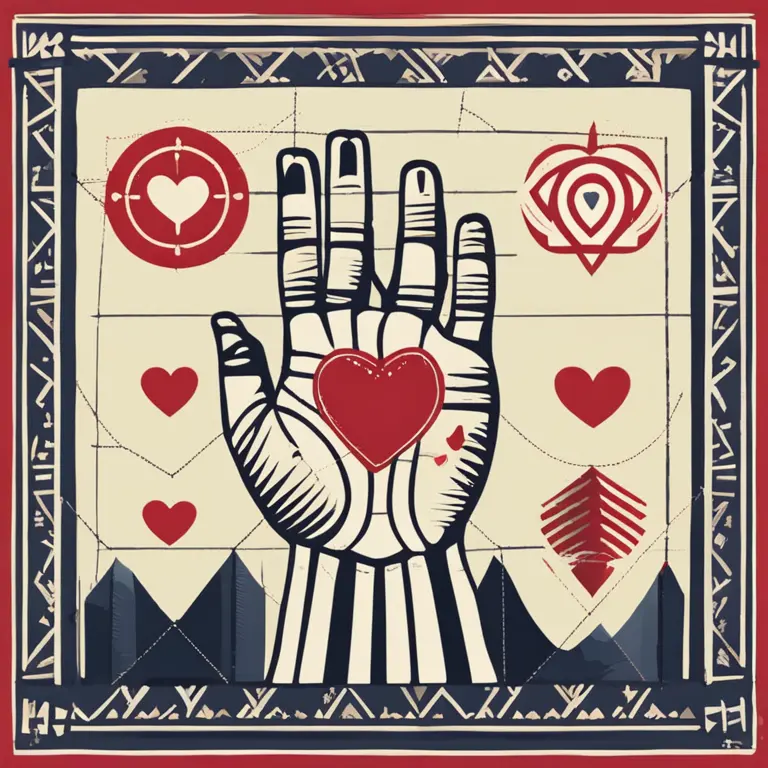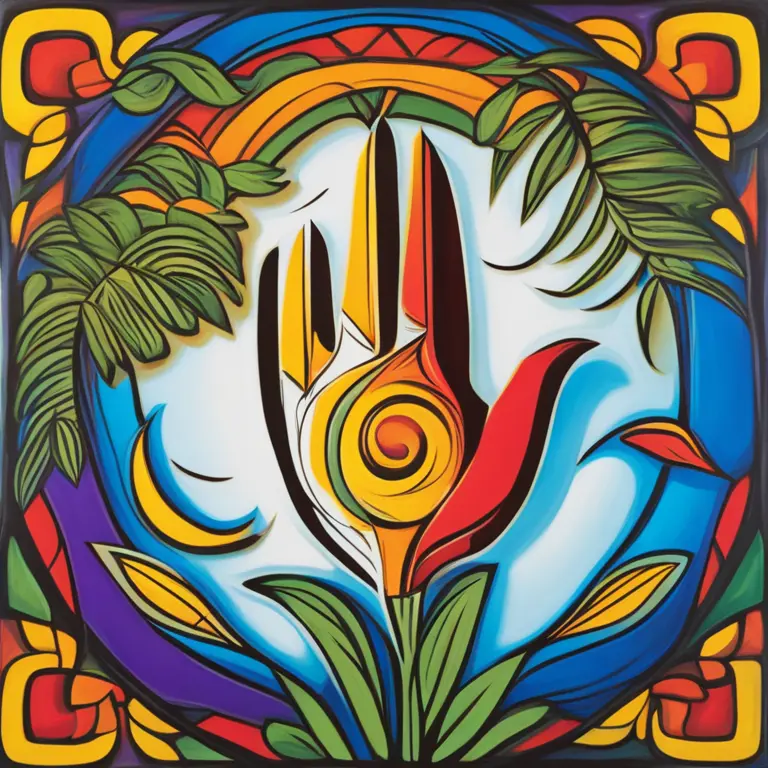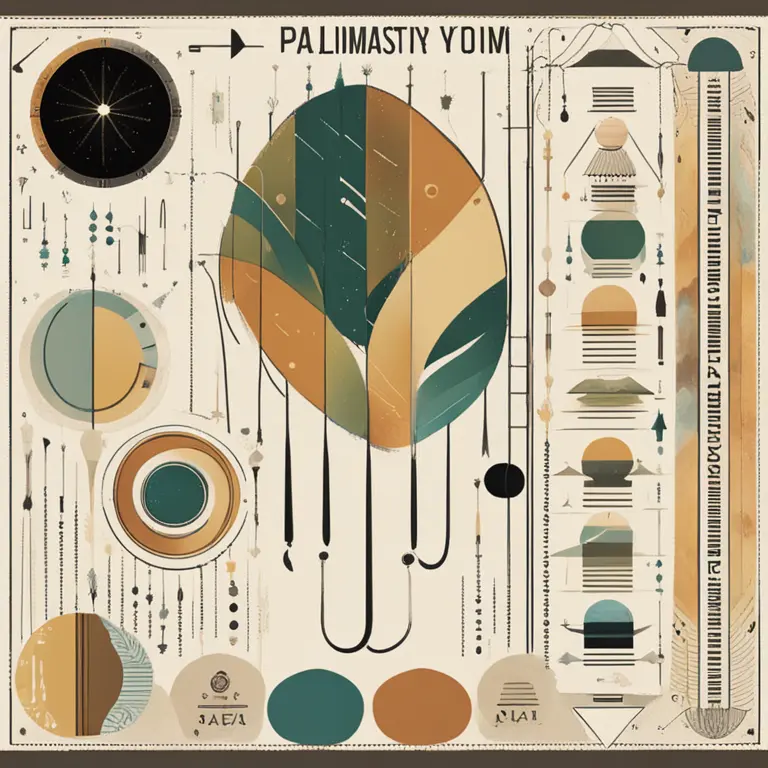
The Elements of Palmistry: A Guide to Hand Reading
Explore the core components of palmistry in this insightful article on hand reading and discover what your palms may reveal about your life's path.
article by Nora Pennington
Palmistry: An Intuitive Science
Palmistry is often viewed as a blend of art and science, a practice where intuition meets the ancient wisdom of interpreting the lines and features of the hand. This tradition, which dates back thousands of years, holds that one's palms can provide significant insights into various facets of life, from personality traits to potential life events. As we embrace the modern era, palmistry has evolved, incorporating new findings and perspectives, yet maintaining its core principles. It is vital, therefore, for individuals exploring palmistry to understand its basic elements, which can serve as a foundation for more profound insights.

Life Line: Vitality and Lifespan
The Life Line is perhaps the most discussed aspect of palmistry. Contrary to popular belief, this line does not strictly predict the length of one's life but rather the quality of it. It can indicate vitality, major life changes, and overall well-being. A deep and unbroken line suggests a robust and hearty life, while variations in the line can allude to significant life transformations or challenges. In analyzing the Life Line, context is critical, and modern hand readers combine this interpretation with other health indicators to provide a more nuanced reading.

Heart Line: Emotions and Relationships
Interpreting the Heart Line focuses on an individual's emotional life and relationships. Spanning the top of the palm, it reflects emotional stability, romantic perspectives, and potential experiences in love. A long and straight line indicates clarity in emotions, whereas a wavy line might suggest a person with many loves, yet little depth in emotional attachment. Contemporary palmists consider the nuances of modern relationships, societal expectations, and psychological insights as they analyze this line.

Head Line: Intelligence and Philosophy
The Head Line represents one's intellect and approach to learning. It cuts horizontally across the palm and speaks to cognitive functioning, wisdom, and decision-making styles. A straight and steady Head Line is often found in pragmatic individuals, while a curved line leaning towards the Mount of Luna can indicate a creative and spontaneous thinker. Contemporary practitioners look at this line in confluence with career trends and educational paradigms to gauge aptitudes suitable for the 21st century.
Fate Line: Life Path and Destiny
Also known as the Destiny Line, the Fate Line may not appear on every palm, which itself can be a telling sign. When present, it can signify the influence of external factors on an individual's life trajectory, including career and major life events. A pronounced Fate Line may suggest a life with a clear direction, whereas its absence might indicate a path of self-made destiny. Palmistry experts continuously update their practices to incorporate the unpredictability of modern life paths and the varied definitions of success.
Mounts and Plains: The Terrain of the Palm
Beyond the lines, palmistry evaluates various mounds and plains—raised or flat areas of the palm, each associated with a different planet and corresponding aspects of personality and life. For example, the Mount of Venus, near the thumb, relates to love and physical vitality. As our understanding of astrology and the physical body evolves, so does the interpretation of these mounts in palmistry, reflecting contemporary holistic views on personality and potential.
Published: 1/11/2024
Modified: 1/12/2024
More predictions
Come back here soon to learn more about yourself and your future


Can Palmistry Foresee One’s Demise?
Delve into the contentious debate about whether palmistry can predict the end of life and the ethical considerations of such a claim.


Palmistry: The Historical Overview
Delve into the dawn of palmistry and trace its journey through the corridors of time, uncovering the roots of this ancient practice.


The Ancient Art of Vedic Palmistry
Discover the ancient art of Vedic Palmistry and its practice in the modern era, revealing the secrets held within the lines of the hand.